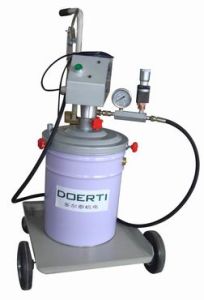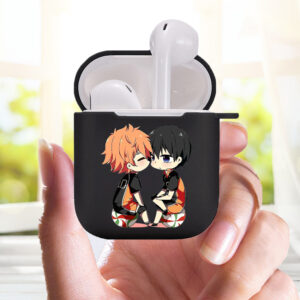Propylene glycol is a chemical compound used in many industries around the world. It has a variety of applications, from food additives to cosmetics and even pharmaceuticals. Propylene glycol is also an important industrial solvent and can be found in a range of products ranging from paints, antifreeze and de-icing fluids for vehicles. Its non-toxic properties make it suitable for use in a wide variety of applications.
What is Propylene Glycol?

Propylene glycol is a clear, colorless liquid that is commonly used as a solvent and humectant in various industries. It has a wide range of applications such as in pharmaceuticals, cosmetics, food additives, and even e-cigarettes. Propylene glycol is highly soluble in water and has low volatility which makes it an ideal ingredient for consumer products.
In the food industry, propylene glycol is used as an additive to help maintain moisture levels in certain foods. It can also act as a preservative by inhibiting bacterial growth. In cosmetics, propylene glycol is used to help regulate viscosity and prevent products from drying out or becoming too thick. Additionally, it can be found in personal care items such as deodorants and toothpaste.
Although generally considered safe for use in consumer products when used within appropriate concentrations, some people may experience skin irritation or allergic reactions to propylene glycol. As with any chemical substance, it’s important to read labels carefully and follow recommended usage guidelines to minimize any potential risks associated with its use.
Health Benefits
Propylene glycol is a chemical commonly used in many industrial and consumer goods, including pharmaceuticals, cosmetics, and food additives. Despite some concerns about its safety, propylene glycol has been approved by the FDA for use in these products.
One of the health benefits of propylene glycol is its ability to improve skin hydration. It is often used as an ingredient in skincare products because it helps to lock in moisture and prevent dryness. Additionally, propylene glycol can help to soothe irritated or inflamed skin due to its anti-inflammatory properties.
Another potential health benefit of propylene glycol is its ability to fight harmful bacteria. In some studies, it has been shown to have antimicrobial properties that can help prevent the growth of certain types of bacteria. This makes it a useful ingredient in products like hand sanitizers and disinfectants which are designed to kill germs and protect against infection.
Uses in Food Products

Propylene glycol is a commonly used ingredient in the food industry due to its ability to act as a solvent, preservative, and stabilizer. It is used in a wide range of products that we consume on a daily basis, including baked goods, dairy products, frozen foods, and beverages. Its low toxicity levels make it safe for consumption by humans.
In baked goods such as cakes and cookies, propylene glycol acts as an emulsifier by keeping the ingredients together and preventing them from separating during baking. In dairy products like ice cream and yogurt, it helps maintain texture and prevents crystallization. Moreover, in frozen foods like pizza dough or fish fillets made with modified starches or protein isolates can be stabilized with propylene glycol.
Overall Propylene glycol has become an essential component of many food formulations due to its versatility in providing texture, flavor retention and preservation characteristics that are vital for ensuring their shelf-life while maintaining quality over extended periods of time.
Environmental Impact
Propylene glycol is a commonly used ingredient in many everyday products such as cosmetics, food, and medications. However, it has been found that the production and usage of propylene glycol can have negative impacts on the environment. During the manufacturing process of propylene glycol, there are emissions of harmful byproducts that can contribute to air pollution.
In addition to its production process, propylene glycol also has environmental concerns related to its disposal. The chemical is not biodegradable and can persist in soil and water for prolonged periods of time. When disposed of improperly, it can contaminate surrounding ecosystems and harm wildlife.
To reduce the environmental impact of propylene glycol usage, there are several measures that manufacturers can take such as implementing sustainable production practices or exploring alternative ingredients with less harmful environmental effects. Consumers can also make a difference by being mindful about properly disposing of products containing propylene glycol and choosing eco-friendly alternatives whenever possible.
Skin and Hair Care Products
Propylene glycol is a common ingredient found in many skin and hair care products. It is a type of alcohol that helps to retain moisture, making it an effective humectant. This means that it draws water into the skin or hair, keeping them hydrated and preventing dryness.
However, propylene glycol has been linked to some potential health concerns. Some studies have suggested that it can cause irritation and allergic reactions in some individuals. In rare cases, propylene glycol may also cause more serious side effects such as liver and kidney damage.
Despite these concerns, propylene glycol is still widely used in many personal care products due to its effectiveness as a moisturizer. If you have sensitive skin or are concerned about the potential risks associated with this ingredient, be sure to read labels carefully and talk to your dermatologist before using any new products containing propylene glycol.
Safety and Allergies
Propylene glycol is a commonly used ingredient in many consumer products, including cosmetics, food, and medications. However, it can also cause allergies and adverse reactions in some individuals. This chemical can be particularly dangerous for those with sensitive skin or respiratory issues.
In order to ensure safety when using products containing propylene glycol, it’s important to carefully read labels and check for any potential allergens. It’s also recommended to perform patch tests before applying new products to the skin or consuming them orally. Additionally, if you experience any symptoms such as itching, redness or swelling after using a product that contains propylene glycol, seek medical attention immediately.
Overall, while propylene glycol has many benefits in various industries and applications, it is important to take precautions when using it due to its potential risks for those with allergies or sensitivities. By being mindful of its presence in different products and taking necessary measures to prevent allergic reactions, individuals can continue enjoying the benefits of these products without putting their health at risk.





